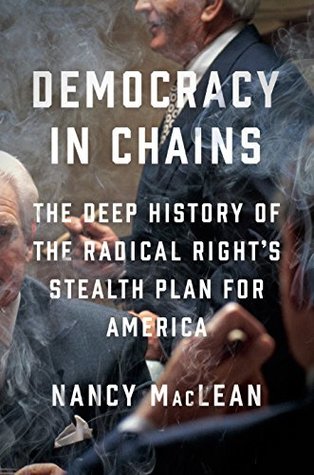The reality had to be faced—and might even prove useful: most citizens knew little about government. Gordon Tullock called it “rational ignorance”: the individual voter had scant effect on outcomes, so why bother to follow politics closely? Busy with other matters, “they devote relatively little time and effort in acquiring information about social policy alternatives”; rather, “they accept what they are told” by news sources they trust. And so it was incumbent on the cause to change what they were hearing and from whom. His vision was to start by converting people of power in domains that
...more
Welcome back. Just a moment while we sign you in to your Goodreads account.


